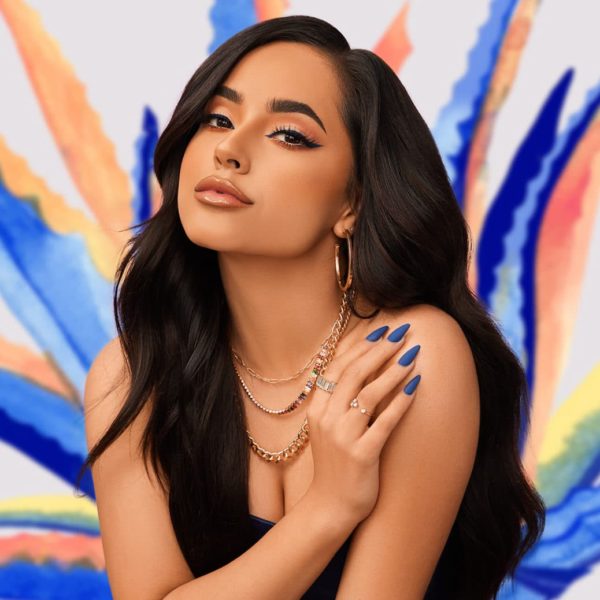By Daniela Sirtori-Cortina, Bloomberg
Almost nine years ago, Jessica Torres launched a style blog to help build her resume as an aspiring fashion journalist. A self-described plus-sized Latina from the Bronx, she didn’t see herself reflected among staffers at the magazine where she interned. She eventually came to the conclusion that the path to success would require striking out on her own.
Today, Torres has 138,000 Instagram followers. Instead of writing stories, she’s paid by the likes of Sephora and Ugg to promote their products, raking in as much as $25,000 for posts and projects on behalf of some brands. But Torres isn’t your typical online influencer: she’s part of a wave of Latinas looking to expand their online footprint and boost corporate respect for one of the largest U.S. consumer demographics.
Especially in the realm of beauty products, Hispanics are increasingly driving and shaping the industry as consumers and business owners. In 2020, Latinos spent 13% more than the average shopper on beauty and personal care, according to research firm NielsenIQ. And there’s a growing number of internet personalities and Hispanic-owned startups getting the message out, from influencer Mariale Marrero and her 6 million Instagram followers to Treslúce Beauty, a makeup brand launched in June by Billboard top 5 Latin female artist Becky G.
Now 31, Torres finally does see herself—she’s part of a burgeoning group of Hispanic entrepreneurs and social media stars. “It’s been really cool to see how much power Latinos are having—and taking,” Torres, who is Ecuadorian-American, said. “It’s game changing.”
This growing prominence in the retail space has accelerated a push to dispel media portrayals that often ignore the diversity and evolving identity of Latinos. Hispanics boast a wide range of skin tones and hair types, which means that no single commercial approach can meet all beauty needs.
“There’s still a lot of education that needs to be done,” said Marrero, who was born in Venezuela and last year launched an eye and cheek palette in collaboration with Too Faced. She said there’s still an outdated idea “of what a Hispanic or Latina has to look like.”
Natasha Pongonis is the chief executive officer of multicultural consumer research firm O.Y.E. and a partner at marketing agency Nativa. She said most advertisements featuring Hispanic models don’t reflect the wide spectrum of Latino looks, like hairstyles ranging from locks in tight curls to pin-straight. The range of shades for certain skincare and makeup products also remains limited, while marketing campaigns by big skincare companies often feature models with lighter complexions, Pongonis said.
Representation of Hispanics in content across platforms was 6% in 2020, according to analytics company Nielsen, even though they make up almost 19% of the U.S. population. And when Hispanics do appear online or in a magazine, they’re often depicted as “exotic,” according to Deyanira Rojas-Sosa, an associate professor at the State University of New York at New Paltz.
Indigenous and Afro-Latino people in particular get little representation in personal care and makeup ads, said Danielle Alvarez, founder of public relations firm The Bonita Project.
Despite the rise of Hispanic-owned brands, they’re still a small part of the beauty market. In a recent panel featuring Latino entrepreneurs by think tank Ready to Beauty, 88% said improved access to capital was critical to expanding the sector. But some entrepreneurs are done waiting for investors.
“I think many people are going ‘well, what the heck?’ I might as well just do it myself,’” said Margarita Arriagada, who served as Sephora’s chief merchant for nine years.
Arriagada, 68, launched refillable-lipstick company Valdé Beauty in the fall of 2020. The name is an homage to her mother, Carolina Valdelomar, who immigrated with her children from Peru. She always wore lipstick as a “glamorous coat of armor” while working three jobs to make ends meet, Arriagada said.
Bloomberg Digital: Why Skin Lightening Is Big Business In Some Parts of the World
Then there’s Latina music star Rebbeca Marie Gomez, better known as Becky G. Her song “Mayores,” featuring Puerto Rican sensation Bad Bunny, has racked up more than two billion views on YouTube.
A former CoverGirl, the 24-year-old realized she didn’t just want to be one mainstream brand’s Hispanic face, saying she’d rather show that Latinas could start their own product lines and craft their own narratives. Like Torres, she too saw minimal representation of people like herself in the media and advertising.
Click here to read the full article on Bloomberg.



